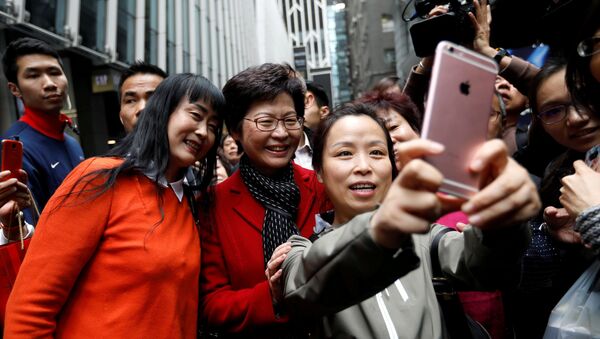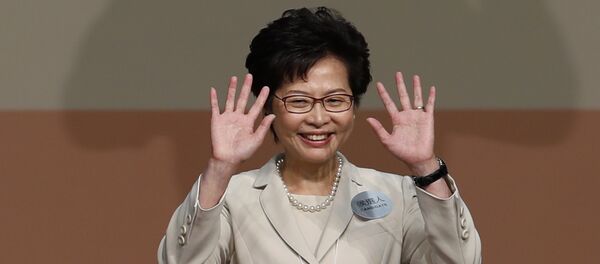According to the expert, Carrie Lam is a very experienced official who has been a civil servant for almost 40 years, since the 1980s.
"She is a very efficient and dedicated civil servant. She has a relatively high degree of support within Hong Kong," the analyst said.
At the same time, William Lam noted that the situation in Hong Kong has changed recently.
"Many people in Hong Kong, particularly members of the younger generation, believe that Beijing is squeezing Hong Kong," he noted.
"Carrie Lam faces a very difficult task. Because, on the one hand, she was chosen by Beijing and she reports to Beijing, to the central government. At the same time, she also has to be responsible for the people of Hong Kong. It's very difficult to ‘serve two masters'," the expert said.
"Beijing, particularly under the presidency of XI Jinping, wants to emphasize the control [over Hong Kong] of the central government."
"There is a lot of frustration, especially among young people, who fear that the highly autonomous powers in Hong Kong might be further restricted," the analyst added.
Carrie Lam took the oath of her new office in the presence of Chinese President Xi Jinping, who arrived in the former British colony for celebrations marking 20 years since the territory's handover to China.
Speaking at a formal ceremony, President Xi vowed that the region would continue to be run under principles that guarantee its broader autonomy.
At the same time, he warned against jeopardizing China's national sovereignty or using Hong Kong for any activity directed against mainland China, stressing that such attempts would be absolutely impermissible.
China gained sovereignty over Hong Kong, which had previously been controlled by the United Kingdom, in 1997. The administrative region was granted legal, economic and political autonomy from Beijing under the "one country, two systems" principle formulated by Chairman of the Central Advisory Commission of the Communist Party of China Deng Xiaoping in the early 1980s.



